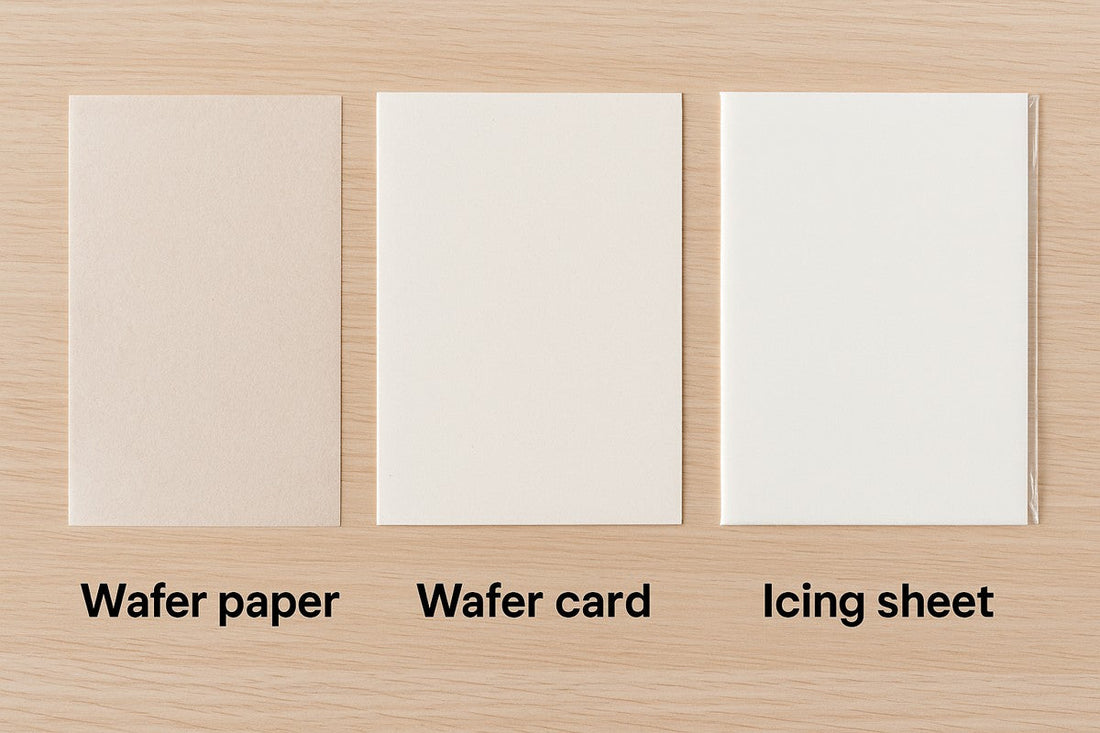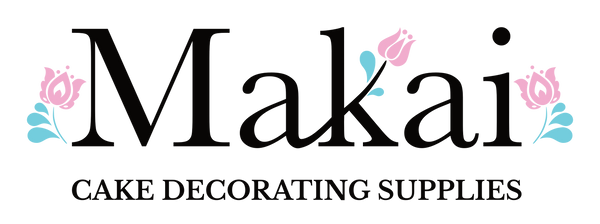
Wafer Paper, Wafer Card or Icing Sheet? – Which One Should You Use?
Share
By Makai Cake Decorating Supplies
When decorating cakes with edible prints or toppers, three materials often come up: wafer paper, wafer card, and icing sheets.
But what’s the difference between them, and how do you choose the right one for your project?
In this beginner-friendly guide, we’ll walk you through what each of these materials is, how they behave, and when to use them for the best results.
What is Wafer Paper?
Wafer paper is a thin, slightly translucent edible sheet made from potato starch, water, and vegetable oil. It has a crisp texture but can be softened with moisture to allow some shaping.
Common uses:
- Flat edible decorations
- Flags, banners, or lightweight toppers
- Folded designs like fans or ribbons
Pros:
- Lightweight and affordable
- Easy to colour and cut
- Great for light decorative elements
Cons:
- Can crack or curl in high humidity
- Not suitable for detailed printing or wet surfaces
What is Wafer Card?
Wafer card is a thicker, sturdier version of wafer paper. It shares the same ingredients but offers much better structural integrity.
Common uses:
- Edible cake toppers with names, numbers or logos
- Stand-up shapes that need to hold their form
Pros:
- Holds its shape well
- Easier to handle than regular wafer paper
- Printable for bold designs
Cons:
- Not flexible
- Slightly more expensive than wafer paper
What is an Icing Sheet?
Icing sheets (also called frosting sheets) are thin layers of sugar paste pressed onto a plastic backing. They’re soft, flexible and ideal for detailed edible printing.
Common uses:
- Edible photo prints
- Full cake toppers or wraps
- Custom illustrations or logos
Pros:
- Prints in high detail and vibrant colour
- Adheres well to buttercream and fondant
- Great for realistic images and character designs
Cons:
- More expensive than wafer products
- Can become sticky in humid conditions
Which One Should You Choose?
| Purpose | Best Option | Why |
|---|---|---|
| Lightweight decoration | Wafer Paper | Budget-friendly, airy, easy to apply |
| Sturdy topper with clear shape | Wafer Card | Holds shape, works well for stand-ups |
| Photorealistic print or logo | Icing Sheet | High print quality and smooth surface |
When Should You Apply It to the Cake?
-
Wafer paper/card: Apply close to serving time (1–2 hours before), especially if your cake surface is moist. Works best on fondant or dry buttercream.
- Icing sheet: Can be applied a day ahead. Avoid condensation after refrigeration—store in a cool, dry place until needed.
Related Reading
How Far in Advance Can You Make a Cake?
How to Package and Transport Cakes Safely
How to Assemble a Cake On-Site – Tips for Weddings and Big Events
Cake Photography for Beginners – How to Take Great Cake Photos at Home
